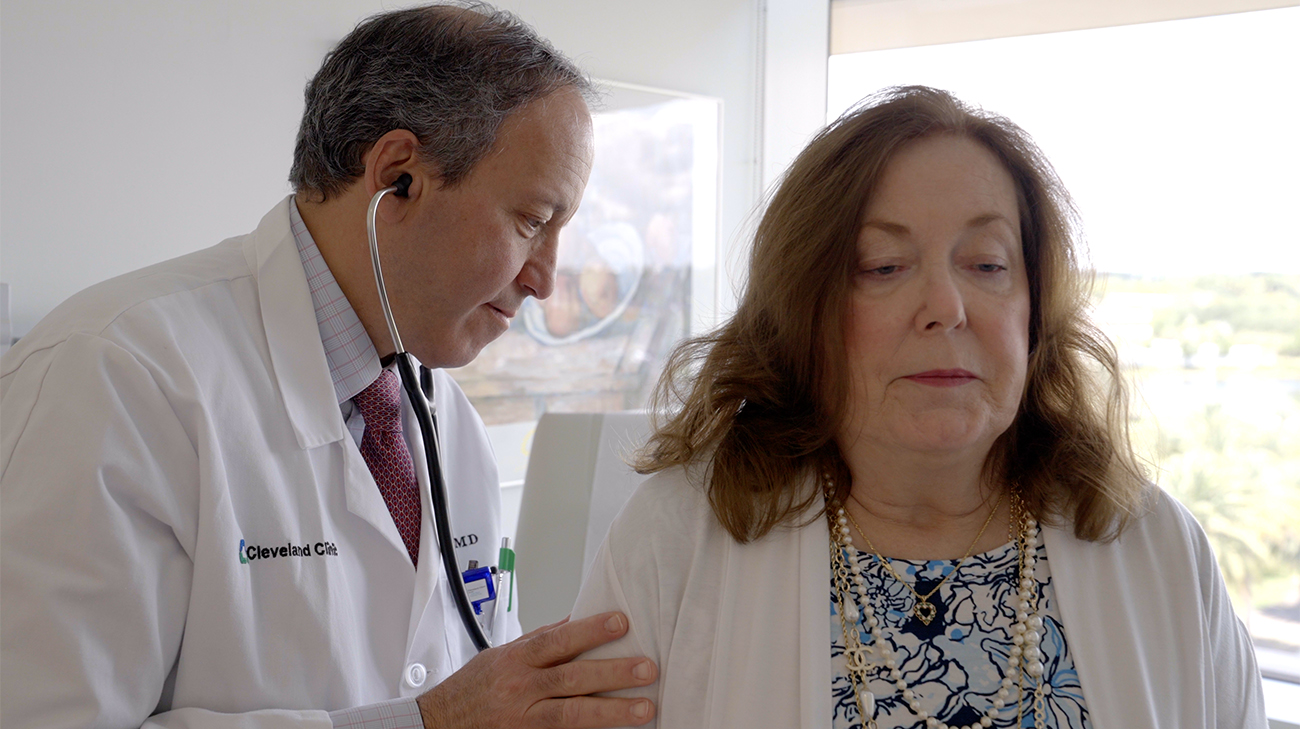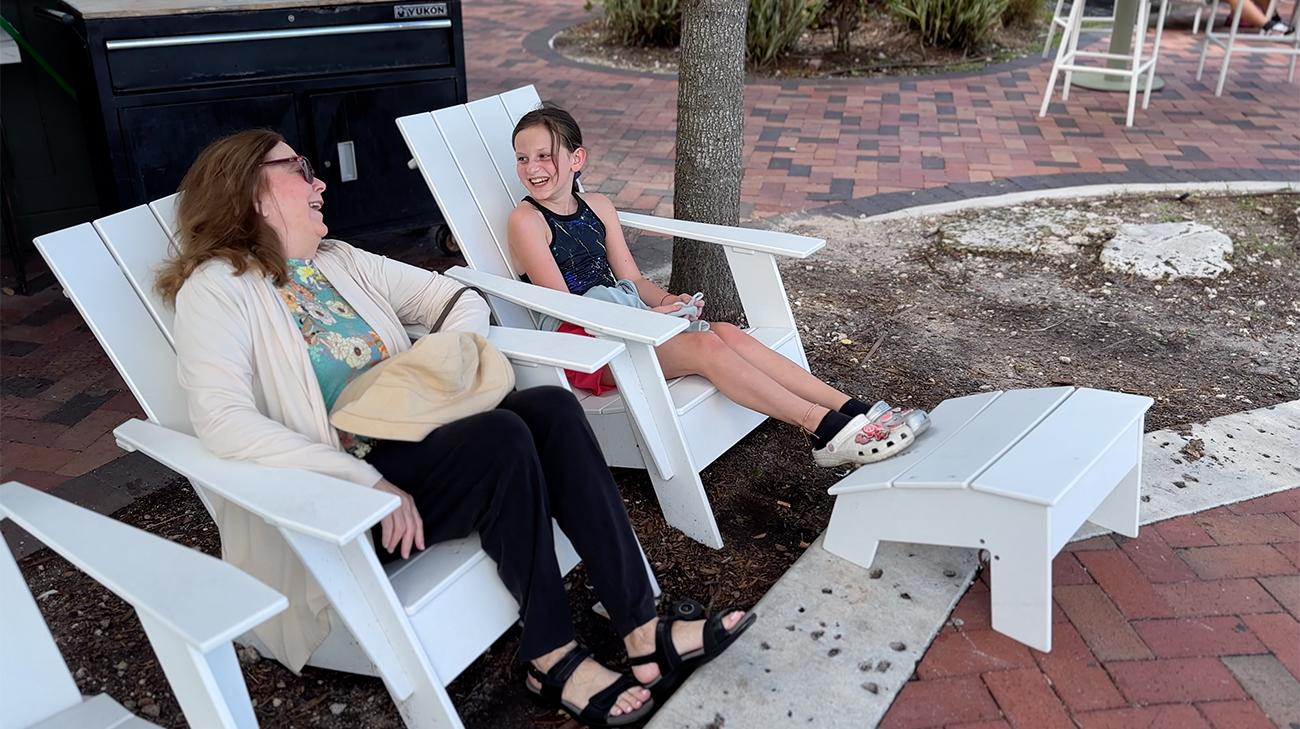Fatigue was an everyday challenge for Susan Pardi for many years. Without even realizing it, she had been changing her lifestyle to accommodate her constant feelings of tiredness. However, it wasn’t until right before she was diagnosed with cardiomyopathy – a disease in which the heart muscle thickens, enlarges or stiffens – that she started having any noticeable symptoms like swelling or shortness of breath.
Nicolas Brozzi, MD, a cardiothoracic surgeon at Cleveland Clinic Weston Hospital, says Susan’s story is typical of the “long, silent progression of heart failure.”
“Patients manage to adjust their activities to their comfort zone until they are not able to compensate anymore, and symptoms become very apparent,” he says.

Susan’s cardiologist, David Baran, MD, Section Head, Advanced Heart Failure, Transplant and MCS at Weston Hospital, says she had restrictive cardiomyopathy – her heart beat well but did not relax, which caused shortness of breath even with modest activity.
Further testing showed a “clear exercise intolerance” and that her heart was weakening.
“We really looked to see if there was any stone unturned. Could we do anything to avoid a transplant? But unfortunately, the answer was ‘no,’ it was not fixable without a transplant,” Dr. Baran says.
Transplant is the best long-term treatment for patients with advanced heart failure for both long-term survival and quality of life, Dr. Brozzi says.

A year and a half after her transplant, Susan says she feels physically better. She can walk at the beach and play with her granddaughter, and she continues to go to physical therapy. But she says she also feels better emotionally knowing she will not have heart failure and appreciates the things she didn’t even realize she wasn’t doing anymore before her transplant, like singing in the car.
She had a great experience at Cleveland Clinic as well.
“Everybody was wonderful, very patient and pleasant,” Susan says.


